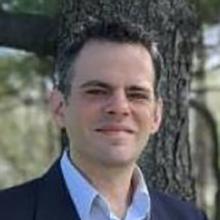From the moment electricity is generated to its arrival in your home, it goes through a vast array of interconnections, transmission lines, substations, and distribution systems. Sometimes, along that journey, it is waylaid in energy storage. All these components taken together are known as ‘the grid.’
The way grids are operated, including building out transmission infrastructure in the necessary geographies where energy is needed, controlling flows, and handling electricity sales, is a critical piece of our clean energy transition. The old coal and natural gas plants are being replaced by solar and wind energy, and we now need a new, redesigned grid that can accommodate a clean energy economy. Suppose the grid is interconnected across an entire region so that we always have access to plentiful renewable resources where the wind is blowing and the sun is shining. In that case, energy will reach its destination quickly and cheaply - whether that’s wind from Montana to Portland or solar from Eastern Oregon to the Bay Area.
Many parts of the country have formed Regional Transmission Organizations (RTOs), which are operators that coordinate, control, and monitor a multi-state electric grid. In other regions, there are Day Ahead Markets (DAMs), which match the buyers and sellers of electricity a day before delivery.
In the PNW, neither of these entities is present. We have an energy imbalance market, which helps balance the grid in real-time and directs electricity where needed. However, it doesn’t allow for the advanced long-term planning and coordination that RTOs, and to some extent DAMs, provide.
However, there is an opportunity now to create a Day Ahead Market in the PNW. This development would be useful for planning renewable energy procurement, and importantly could also form the foundation of a future RTO.
There are two competing Day Ahead Markets developing in our region. One is EDAM, and the other is SPP Markets+. The specifics of how these two markets operate are complicated. However, there are two important points. First, both markets are being considered by utilities in the PNW. Second, if utilities in the PNW region join different markets, we will miss out on the efficiencies, cost savings, and clean energy benefits that one regional market with a broad footprint could provide. Think about it like going through airport security twice - if that wind energy traveling from Montana to Portland has to pass through the boundaries (or ‘security check-points’) of two different markets, it will take longer, cost more, and potentially be less available when it’s needed the most.
The Bonneville Power Administration (BPA), a federal agency that operates 75% of the transmission lines in Oregon, is now considering joining a day-ahead market. BPA’s decision will be enormously consequential for our state’s clean energy transition. Climate Solutions and our partners have urged BPA only to decide once EDAM and Markets+ are fully mature options for our region. There are market characteristics that are important to consider, including which one offers broader access to renewable energy resources, reduces curtailment (the ‘wasting’ of energy), and operates sufficient transmission resources to get that renewable energy where it needs to go. BPA should consider the vast benefits of joining the same market as other utilities, ensuring a single market operator. A hasty decision could split the market and put us on the wrong path toward a regional energy market that imposes an extra layer of ‘airport security’, rather than one that facilitates abundant, inexpensive, and clean energy.
All four Oregon and Washington senators recognized the gravity of this decision and recently sent a letter to BPA urging deliberate consideration. Their request seems to have been received well by BPA. The agency is considering delaying its decision. We will need to remain vigilant to ensure that BPA makes an informed and thoughtful decision - one that hopefully leads to a single market in the PNW—with all the benefits that it brings for the clean energy transition.





